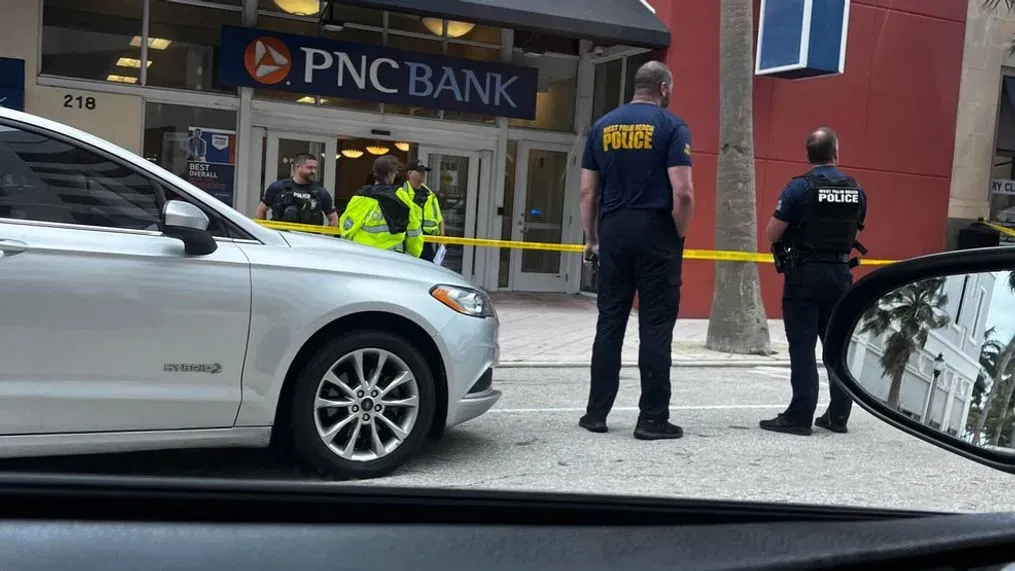Yes, in the UK, the police can investigate your bank account, but it’s always done within the legal boundaries set by the Proceeds of Crime Act 2002 (POCA) and the Money Laundering Regulations.
They’ll typically look into your finances when they suspect money laundering, fraudulent activities like identity theft or credit card fraud, during specific investigations where a court order is obtained – such as cases involving serious crimes like drug trafficking or terrorism, or in situations where someone has been convicted of a major criminal offense, allowing the police to assess if they can seize assets according to POCA regulations. All these actions are conducted following the law to ensure fairness and justice.
What is Money Laundering?

Money laundering is a tricky way of making “dirty” money, which comes from illegal activities like drug trafficking or fraud, look “clean” and legal. It’s like trying to hide the fact that you got the money through bad deeds.
First, the “dirty” money is put into the financial system. This could be through things like depositing cash into a bank or buying assets like expensive cars or properties.
Next, they try to hide where the money came from. This involves moving the money around a lot, like through various bank accounts or countries, making it hard to trace.
Finally, the money is brought back into the economy as “clean” cash. This can happen through legal business transactions or by buying things that can be sold later for profit.
Money laundering is illegal because it helps criminals enjoy the profits of their illegal activities without getting caught. Laws and regulations are in place to stop this and protect the integrity of the financial system.
What Triggers Suspicion?
Money laundering investigations often start when authorities notice certain behaviors or transactions that stand out from the norm. These triggers serve as red flags, prompting law enforcement to investigate whether money laundering might be taking place.
Unusually Large Transactions
When a person or business suddenly deals with a significant amount of money, particularly if it’s far more than their usual financial activity, it can raise suspicion. Such large transactions might indicate an attempt to launder substantial sums of money quickly.
Frequent International Transfers
Regularly sending money to other countries, especially to regions known for financial secrecy or lax regulation, can attract attention. International transfers can be used to move money out of the reach of domestic authorities.
Cash Transactions
Cash transactions, particularly involving large amounts, are often considered a risk factor. Cash is harder to trace than digital transactions, making it a preferred choice for those seeking to launder money.
Complex Transactions
Money laundering often involves a convoluted web of financial movements. If the money takes a complex path, moving through various bank accounts or undergoing multiple transactions in a short time, it can indicate an effort to obscure its origin.
Unexplained Income
If someone experiences a sudden increase in their income that cannot be reasonably explained by legitimate means, it may raise suspicion. This can occur when someone is trying to legitimize illegal earnings.
Sudden Wealth:
Acquiring expensive assets or properties without an apparent source of funds can be viewed with skepticism. Criminals involved in money laundering may invest in assets to convert their “dirty” money into something valuable.
Multiple Accounts:
Managing numerous bank accounts, especially in different financial institutions or countries, can be seen as suspicious. This may suggest an attempt to spread illicit funds across various accounts to complicate tracking.
Alerts from Financial Institutions
Banks and financial institutions are mandated to report unusual or suspicious financial activities to authorities. These alerts can include large and unusual transactions, inconsistent account activity, or patterns that seem out of place.
How Does the Legal Framework for UK Bank Account Investigations Work?
The Proceeds of Crime Act 2002 (POCA)
The Proceeds of Crime Act 2002 serves as the cornerstone of the legal framework. It provides law enforcement agencies and authorities with the legal tools they need to investigate and, if necessary, confiscate assets that have been acquired through criminal activities. The workings of POCA can be summarized as follows:
Confiscation of Criminal Assets: POCA empowers authorities to confiscate assets derived from criminal activities. This means that if someone has gained wealth through illegal means, the law allows authorities to seize these assets.
Asset Recovery: The law targets the money, property, or other assets that have been used in criminal enterprises. It is designed to disrupt the financial benefits of criminal activities.
Money Laundering Offenses: POCA provides a legal basis for taking action against individuals involved in money laundering. Money laundering involves making “dirty” money appear “clean” or legitimate.
Recovery Measures: The Act also includes measures to recover assets derived from illegal conduct. This is a crucial aspect of restoring illicitly acquired wealth to its rightful place.
Money Laundering Regulations
In addition to POCA, the Money Laundering Regulations play a significant role in the legal framework. These regulations place specific obligations on financial institutions and various businesses. Here’s how they function
Anti-Money Laundering Systems: Financial institutions are required to establish and maintain anti-money laundering (AML) systems and controls. These systems help in detecting and preventing money laundering activities.
Customer Due Diligence: The regulations mandate customer due diligence procedures to verify the identity of customers and monitor their transactions. This process ensures that the financial institution knows who they are dealing with.
Reporting Suspicious Activities: Financial institutions must have procedures in place for reporting suspicious activities to the authorities. If something doesn’t seem right with a customer’s financial activity, it must be reported.
Training and Compliance: The regulations impose obligations on businesses to train their staff in AML compliance. This ensures that employees are aware of the legal requirements and can recognize suspicious transactions.
Lastly, the legal framework is designed to strike a balance between maintaining law and order, protecting the financial system’s integrity, and respecting individual rights. It ensures that investigations into bank accounts are carried out in accordance with established legal procedures.
Are Warrants and Court Orders Necessary for Bank Account Investigations?
Yes, warrants and court orders are indeed necessary for bank account investigations in the United Kingdom. These legal instruments are fundamental components of the legal process, and they play a crucial role in ensuring that investigations into bank accounts are conducted lawfully and in a manner that respects individuals’ rights and privacy.
Warrants in Bank Account Investigations
Warrants act like a judge’s permission slip. They are formal documents issued by a judicial authority, typically a judge, allowing specific actions, such as accessing bank records. These are essential in the UK because they:
Warrants ensure that authorities cannot access personal bank records without a good reason, safeguarding an individual’s right to privacy.
To get a warrant, authorities must show a probable cause, meaning they have valid grounds to believe that the bank records hold evidence related to a crime. This rule stops unwarranted intrusions into people’s financial privacy.
Warrants are a crucial part of due process, making sure investigations are conducted lawfully and fairly, without unjust invasions of financial privacy.
Court Orders and Their Role
Court orders are like official directions from a court, often issued when law enforcement agencies request them.
Court orders grant permission to access bank records for criminal investigations, always based on valid reasons presented to the court.
Furthermore, court orders make sure that individuals’ rights are respected during investigations, acting as legal safeguards to prevent abuses of power.
Also, court orders are part of the rules that prevent unjust intrusions into people’s financial matters, making sure investigations follow established legal procedures.
How Do Banking Regulations and Privacy Laws Impact Bank Account Investigations?
In the realm of bank account investigations, banking regulations and privacy laws are paramount in safeguarding individuals’ rights and personal information.
Anti-Money Laundering (AML) Regulations
Financial institutions are required to establish and maintain anti-money laundering systems and controls. This helps in detecting and preventing money laundering activities. AML regulations require banks to verify the identity of their customers and monitor their transactions, a process known as Customer Due Diligence (CDD).
Suspicious Activity Reports (SARs)
When banks notice strange or unusual financial activities, they are legally obligated to report these activities to authorities in the form of SARs. This helps law enforcement agencies identify potential money laundering or other illicit financial activities.
Know Your Customer (KYC) Procedures
Banks have robust KYC procedures to verify the identities of their customers and monitor their transactions. These measures are vital in identifying unusual or suspicious financial activity.
General Data Protection Regulation (GDPR)
In the UK, the General Data Protection Regulation (GDPR) is a fundamental privacy law that plays a pivotal role in protecting personal data. GDPR establishes stringent requirements for data processing, ensuring that individuals have control over their personal information. It sets clear boundaries on how organizations, including banks, can use and manage personal data.
Data Security
Privacy laws require that organizations, including banks and law enforcement agencies, implement robust data security measures to prevent data breaches or unauthorized access to sensitive information.
Consent and Transparency
These laws also stipulate that individuals must provide consent for the collection and use of their personal data. They also emphasize the importance of transparency, requiring organizations to inform individuals about how their data will be used.
How do I know if my bank account is under investigation?

Knowing if your bank account is under investigation can be challenging, as authorities typically keep such investigations confidential to avoid tipping off suspects. However, there are some signs or scenarios that might indicate that your bank account is being investigated
Unusual Account Activity: If you notice unusual or unexpected changes in your account, such as withdrawals, deposits, or transactions you didn’t authorize, it could be a sign of an investigation. Authorities may freeze or monitor your account during an inquiry.
Account Holds: If you find that your account has been frozen, or there are holds on your funds without a clear explanation, this could be a result of an investigation. Authorities may place holds to prevent further transactions during the inquiry.
Communication from Your Bank: If your bank contacts you to inquire about specific transactions or activities in your account, it could be an indicator of an investigation. Banks are required to report suspicious transactions or activities to authorities, which can trigger inquiries.
Request for Information: If law enforcement or government agencies contact you directly or through your bank requesting information or documents related to your account, this is a clear sign of an investigation.
Legal Notices or Subpoenas: Receiving legal notices, such as subpoenas or court orders, related to your bank account is a strong indication that it is under investigation.
Reports from Others: Sometimes, investigations might involve individuals or entities associated with your account, and they may cooperate with authorities or provide information that triggers the inquiry.
Suspicious Activity Reports (SARs): Banks are required to file SARs when they detect unusual or suspicious activity in an account. These reports can initiate an investigation.
Visits from Law Enforcement: In rare cases, law enforcement may visit you or your business in person to inquire about your financial activities, which could signal an investigation.
FAQ
Can police access your bank records UK?
Yes, the police in the UK can access your bank records, but they must follow legal procedures, such as obtaining warrants or court orders, to do so. Bank records can be accessed as part of a criminal investigation, particularly in cases of suspected financial misconduct like money laundering or fraud.
Can police freeze bank accounts UK?
Yes, police in the UK, under certain circumstances, can request the freezing of bank accounts as part of a criminal investigation. This is typically done to prevent the withdrawal or movement of funds while the investigation is ongoing.
How do I know if my bank account has been flagged?
Banks do not typically inform customers if their accounts have been flagged. However, you may notice unusual holds on your funds, receive communication from your bank regarding specific transactions, or be contacted by law enforcement, which could be indicators of your account being flagged or under investigation.
How long can a UK bank freeze your account?
The duration of a bank account freeze in the UK can vary depending on the nature of the investigation and the legal process. It may range from a temporary hold of a few days to a more extended freeze if required by a court order.
Can a UK bank close your account?
Yes, a UK bank can close your account, usually with notice. Banks may close accounts for various reasons, including suspicion of illegal activities, non-compliance with bank policies, or other legitimate grounds. It’s important to review your bank’s terms and conditions for specific details.
How much money can be withdrawn from a bank before an investigation?
There is no fixed amount that triggers an investigation when withdrawing money from a bank in the UK. Investigations are typically initiated based on suspicious activity rather than a specific withdrawal amount. Unusually large cash withdrawals or patterns of suspicious transactions may prompt further inquiry.
What is considered suspicious bank activity?
Suspicious bank activity can include large, unexplained transactions, frequent international transfers, complex financial movements, unexplained increases in income, or patterns that deviate from an individual’s normal financial behavior. It’s important to note that the context of the activity and other factors are also considered in determining suspiciousness.
What is a bank account that can’t be traced?
A bank account that can’t be traced typically refers to offshore or anonymous accounts. While such accounts exist, they are often associated with increased risk of illegal activity and may not be in compliance with banking regulations. Tracing may still be possible through international cooperation and legal means.
Can bank transactions be traced?
Yes, bank transactions can be traced. Financial institutions maintain records of transactions for regulatory and security purposes. Law enforcement agencies, with proper legal authorization, can access these records to trace and investigate financial activities when necessary.
Final words
Finally, police in the UK can investigate your bank account, but they must do so within the boundaries of the law. These investigations are governed by important legal frameworks like the Proceeds of Crime Act 2002 and Money Laundering Regulations.
They typically occur when there are suspicions of money laundering, fraud, or other serious crimes. While these investigations are necessary to maintain law and order, they must also respect your privacy and rights. Legal safeguards like warrants and court orders ensure that these inquiries are conducted fairly. Knowing your rights and responsibilities when it comes to your bank account can help you navigate this process while upholding the rule of law.

